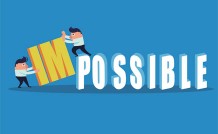Online Class: ABCs of Technical Writing

no certificate
with CEU Certificate*
-
11Lessons
-
19Exams &
Assignments -
3,166Students
have taken this course -
9Hours
average time -
0.9CEUs
Course Description
Technical writing is the art and science of translating technical information into readable, accessible writing usable by a wide audience. If you have ever read the user's manual for a piece of software or equipment you've purchased, you've seen technical writing in action. Creating manuals, help and technical support systems, online help systems, and instruction manuals are some of the main projects technical writers take on. Since nearly every business in every industry imaginable has at least an occasional need to bring technical information to its users and customers, technical writing is found in nearly every business, government agency, and non-profit organization.
If you work in a high tech industry, technical writing may be a part of your job description and daily duties. If you love to write, enjoy learning, and have an interest in technology, technical writing can be an exciting, rewarding career in itself. Job opportunities in the field are expected to grow as technology continues to advance.
Course Motivation
Some of the fields in which technical writing is commonly needed include the computer and software industries, the consumer and industrial electronics industries, the medical and healthcare fields, and any other area where technical information needs to be disseminated in a readable and understandable form. In the United States and other developed countries, where knowledge industries, whose primary products are information based, companies are faced with the task of organizing and maintaining vast knowledge banks and databases. Companies like Google, for instance, do not produce products but instead package information in useful, usable forms. New content management systems and knowledge management systems are being designed to help companies manage their informational assets. In many cases, technical writers are moving into these roles as well.
Technical Writer or Technical Communicator?
Technical Writing, A Viable Career?
- Completely Online
- Self-Paced
- 6 Months to Complete
- 24/7 Availability
- Start Anytime
- PC & Mac Compatible
- Android & iOS Friendly
- Accredited CEUs

Course Lessons
Lesson 1. What is Technical Writing?
 Lesson 1 Video
Lesson 1 Video Lesson discussions: Reasons for Taking this Course
Lesson discussions: Reasons for Taking this Course Complete: Assignment - Lesson 1
Complete: Assignment - Lesson 1 Complete Assignment: An Introduction
Complete Assignment: An Introduction Assessment: Lesson 1: What is Technical Writing?
Assessment: Lesson 1: What is Technical Writing?
Lesson 2. Projects for Technical Writers
 Lesson 2 Video
Lesson 2 Video Lesson discussions: Imagination Rules
Lesson discussions: Imagination Rules Complete: Assignment - Lesson 2
Complete: Assignment - Lesson 2 Assessment: Lesson 2: Projects for Technical Writers
Assessment: Lesson 2: Projects for Technical Writers
Lesson 3. The Technical Writing Process
 Lesson 3 Video
Lesson 3 Video Assessment: Lesson 3: The Technical Writing Process
Assessment: Lesson 3: The Technical Writing Process
Lesson 4. How to Write Effectively
 Lesson 4 Video
Lesson 4 Video Complete: Assignment - Lesson 4
Complete: Assignment - Lesson 4 Assessment: Lesson 4: How to Write Effectively
Assessment: Lesson 4: How to Write Effectively
Lesson 5. Teaching an Alien to Drive
 Lesson 5 Video
Lesson 5 Video Assessment: Lesson 5: Teaching an Alien to Drive
Assessment: Lesson 5: Teaching an Alien to Drive
Lesson 6. The First End User, You
 Lesson 6 Video
Lesson 6 Video Lesson discussions: What Type of Learner are You?
Lesson discussions: What Type of Learner are You? Complete: Assignment - Lesson 6
Complete: Assignment - Lesson 6 Assessment: Lesson 6: The First End User: You
Assessment: Lesson 6: The First End User: You
Lesson 7. Getting It Done. Project Management and the Technical Writer
 Lesson 7 Video
Lesson 7 Video Assessment: Lesson 7: Getting It Done: Project Management and the Technical Writer
Assessment: Lesson 7: Getting It Done: Project Management and the Technical Writer
Lesson 8. Words, Pictures, and Links. The Growing Array of Deliverable Formats
 Lesson 8 Video
Lesson 8 Video Assessment: Lesson 8: Words, Pictures, and Links: The Growing Array of Deliverable Formats
Assessment: Lesson 8: Words, Pictures, and Links: The Growing Array of Deliverable Formats
Lesson 9. Breaking into Technical Writing
 Lesson 9 Video
Lesson 9 Video Complete: Assignment - Lesson 9
Complete: Assignment - Lesson 9 Assessment: Lesson 9: Breaking into Technical Writing
Assessment: Lesson 9: Breaking into Technical Writing
Lesson 10. The Tech Writer's Toolbox
 Lesson 10 Video
Lesson 10 Video Lesson discussions: Language Basics
Lesson discussions: Language Basics Assessment: Lesson 10: The Tech Writer's Toolbox
Assessment: Lesson 10: The Tech Writer's Toolbox
Lesson 11. Staying in Touch
 Lesson 11 Video
Lesson 11 Video Lesson discussions: How would you rate this course?; Program Evaluation Follow-up Survey (End of Course); Course Comments
Lesson discussions: How would you rate this course?; Program Evaluation Follow-up Survey (End of Course); Course Comments Complete: Assignment - Lesson 11
Complete: Assignment - Lesson 11 Assessment: Lesson 11: Staying in Touch
Assessment: Lesson 11: Staying in Touch Assessment: Technical Writing - Final Exam
Assessment: Technical Writing - Final Exam
Learning Outcomes
- Identify what technical writing is.
- Identify the types of projects that require technical writers.
- Summarize the technical writing process.
- Write technical materials more effectively.
- Write with the end-user in mind, and not the product owner.
- Demonstrate time management skills to complete a project.
- Evaluate your technical writing.
- Identify the best resources for finding technical writing projects.
- Demonstrate mastery of lesson content at levels of 70% or higher.
Additional Course Information

- Document Your Lifelong Learning Achievements
- Earn an Official Certificate Documenting Course Hours and CEUs
- Verify Your Certificate with a Unique Serial Number Online
- View and Share Your Certificate Online or Download/Print as PDF
- Display Your Certificate on Your Resume and Promote Your Achievements Using Social Media

Choose Your Subscription Plan
No Certificate / No CEUs
This course only
| Includes certificate | X |
| Includes CEUs | X |
| Self-paced |

|
| Instructor support |

|
| Time to complete | 6 months |
| No. of courses | 1 course |
Certificate & CEUs
This course only
| Includes certificate |

|
| Includes CEUs |

|
| Self-paced |

|
| Instructor support |

|
| Time to complete | 6 months |
| No. of courses | 1 course |
Certificates & CEUs
Includes all 600+ courses
| Includes certificate |

|
| Includes CEUs |

|
| Self-paced |

|
| Instructor support |

|
| Time to complete | 12 Months |
| No. of courses | 600+ |
Certificates & CEUs
Includes all 600+ courses
| Includes certificate |

|
| Includes CEUs |

|
| Self-paced |

|
| Instructor support |

|
| Time to complete | 24 Months |
| No. of courses | 600+ |
Student Testimonials
- "Great course and nice instruction." -- David M.
- "The lessons were very clear and helpful." -- Julianna Z.
- "The instructor was so helpful." -- Anchal N.
- "I really enjoyed working with the instructor. I found the writing assignments most helpful. Practicing specific writing skills is the best way to learn technical writing." -- Paul S.
- "Excellent!" -- Jeannine S.
- "It was a good overview, which is exactly what I was looking for. I enjoyed your classes. Thank you." -- Beth B.
- "Everything was great." -- Nancy M.
Related Courses
-
 87 hours
8.7 CEUs
Writing Help Course Bundle
$135.00
87 hours
8.7 CEUs
Writing Help Course Bundle
$135.00
-
 6 hours
0.6 CEUs
Freelance Writing 101
$95.00
6 hours
0.6 CEUs
Freelance Writing 101
$95.00
-
 23 hours
2.3 CEUs
Historical Fiction Writing
$95.00
23 hours
2.3 CEUs
Historical Fiction Writing
$95.00
-
 12 hours
1.2 CEUs
Romance Writing
$95.00
12 hours
1.2 CEUs
Romance Writing
$95.00
-
 14 hours
1.4 CEUs
Journalism 101
$95.00
14 hours
1.4 CEUs
Journalism 101
$95.00
-
 9 hours
0.9 CEUs
Nonfiction Writing 101
$95.00
9 hours
0.9 CEUs
Nonfiction Writing 101
$95.00
-
 9 hours
0.9 CEUs
ABCs of Technical Writing
$95.00
9 hours
0.9 CEUs
ABCs of Technical Writing
$95.00
-
 11 hours
1.1 CEUs
Writing Effective Emails in the Workplace
$95.00
11 hours
1.1 CEUs
Writing Effective Emails in the Workplace
$95.00
-
 17 hours
1.7 CEUs
Poetry Writing 101
$95.00
17 hours
1.7 CEUs
Poetry Writing 101
$95.00
-
 14 hours
1.4 CEUs
Writing Improvement 101
$95.00
14 hours
1.4 CEUs
Writing Improvement 101
$95.00
-
 5 hours
0.5 CEUs
Team Building 101
$95.00
5 hours
0.5 CEUs
Team Building 101
$95.00
-
 9 hours
0.9 CEUs
Resume Writing 101
$95.00
9 hours
0.9 CEUs
Resume Writing 101
$95.00
-
 7 hours
0.7 CEUs
Spelling 101
$95.00
7 hours
0.7 CEUs
Spelling 101
$95.00
-
 5 hours
0.5 CEUs
Kaizen 101 - An Introduction
$95.00
5 hours
0.5 CEUs
Kaizen 101 - An Introduction
$95.00
-
 5 hours
0.5 CEUs
Habits of Millionaires
$95.00
5 hours
0.5 CEUs
Habits of Millionaires
$95.00
-
 7 hours
0.7 CEUs
Financial Analysis 101: Planning and Control
$95.00
7 hours
0.7 CEUs
Financial Analysis 101: Planning and Control
$95.00
-
 5 hours
0.5 CEUs
Goal Setting 101
$95.00
5 hours
0.5 CEUs
Goal Setting 101
$95.00
-
 8 hours
0.8 CEUs
Strategic Planning
$95.00
8 hours
0.8 CEUs
Strategic Planning
$95.00
-
 11 hours
1.1 CEUs
Journaling and Memoir Writing
$95.00
11 hours
1.1 CEUs
Journaling and Memoir Writing
$95.00
-
 11 hours
1.1 CEUs
Essay Writing 101
$95.00
11 hours
1.1 CEUs
Essay Writing 101
$95.00
-
 14 hours
1.4 CEUs
Report Writing 101
$95.00
14 hours
1.4 CEUs
Report Writing 101
$95.00
-
 9 hours
0.9 CEUs
Mystery Writing
$95.00
9 hours
0.9 CEUs
Mystery Writing
$95.00
-
 10 hours
1.0 CEUs
Travel Writing 101
$95.00
10 hours
1.0 CEUs
Travel Writing 101
$95.00
-
 14 hours
1.4 CEUs
Creative Writing for Beginners
$95.00
14 hours
1.4 CEUs
Creative Writing for Beginners
$95.00
-
 19 hours
1.9 CEUs
Creative Writing 101
$95.00
19 hours
1.9 CEUs
Creative Writing 101
$95.00
-
 12 hours
1.2 CEUs
Paranormal Romance Writing
$95.00
12 hours
1.2 CEUs
Paranormal Romance Writing
$95.00
-
 7 hours
0.7 CEUs
Writing Women's Fiction
$95.00
7 hours
0.7 CEUs
Writing Women's Fiction
$95.00
-
 16 hours
1.6 CEUs
Advertising Copywriter
$95.00
16 hours
1.6 CEUs
Advertising Copywriter
$95.00
-
 5 hours
0.5 CEUs
Writing the Great American Short Story
$95.00
5 hours
0.5 CEUs
Writing the Great American Short Story
$95.00
-
 12 hours
1.2 CEUs
Writing Effective Persuasion
$95.00
12 hours
1.2 CEUs
Writing Effective Persuasion
$95.00
-
 6 hours
0.6 CEUs
Goal Setting for Business
$95.00
6 hours
0.6 CEUs
Goal Setting for Business
$95.00
-
 8 hours
0.8 CEUs
Procurement Management
$95.00
8 hours
0.8 CEUs
Procurement Management
$95.00
-
 12 hours
1.2 CEUs
Advertising, Marketing and Sales Writing
$95.00
12 hours
1.2 CEUs
Advertising, Marketing and Sales Writing
$95.00
-
 12 hours
1.2 CEUs
How to Write Case Studies
$95.00
12 hours
1.2 CEUs
How to Write Case Studies
$95.00
-
 8 hours
0.8 CEUs
Marketing Copywriter 101
$95.00
8 hours
0.8 CEUs
Marketing Copywriter 101
$95.00
-
 7 hours
0.7 CEUs
Management Consultant 101
$95.00
7 hours
0.7 CEUs
Management Consultant 101
$95.00
-
 9 hours
0.9 CEUs
Product Management 101
$95.00
9 hours
0.9 CEUs
Product Management 101
$95.00









